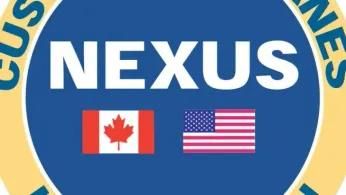
Aug 8
Nexus Cards for Canadians Drop ‘X’ Gender Marker After U.S. Policy Change, Sparking Concerns for Trans and Non-Binary Travelers
READ TIME: 3 MIN.
Canadians seeking to apply for or renew their Nexus trusted traveler cards are now limited to choosing only ‘M’ (male) or ‘F’ (female) gender markers, a significant rollback from the previous option that allowed an ‘X’ marker for non-binary and gender-diverse individuals. This change, which took effect in February 2025, follows an executive order from U.S. President Donald Trump mandating that American authorities only recognize male or female gender markers on official documents, including those used for cross-border travel between Canada and the United States .
Nexus cards are jointly managed by the Canadian Border Services Agency (CBSA) and U.S. Customs and Border Protection (CBP) to facilitate faster border crossings for pre-approved travelers. In 2017, Canada became one of the first countries to offer ‘X’ as a gender option on passports and travel documents, affirming the rights of transgender, non-binary, and gender-diverse citizens to accurate identification .
However, the application and approval process for Nexus is run on a U.S. system, and the latest executive order from Washington overrides Canada’s inclusive policy. As a result, even those with a Canadian passport marked ‘X’ must select either ‘male’ or ‘female’ when applying for or renewing their Nexus card .
Existing Nexus cards displaying an ‘X’ marker will remain valid until their expiration, but all new and renewed cards will only display ‘M’ or ‘F’ .
The rollback has prompted concern among LGBTQ+ rights advocates and travelers who rely on accurate gender markers for both personal safety and dignity. For many transgender and non-binary people, travel documents that do not reflect their lived identity can lead to distress, misgendering, and even increased risk of discrimination or harassment when crossing international borders.
Luke Reimer, a spokesperson for the CBSA, emphasized that while Canada recognizes the right to an ‘X’ gender identifier, the agency is unable to guarantee that other countries—including the United States—will honor or recognize such markers. “Not all countries have the same values and legal system that we have in Canada,” Reimer stated in a public comment. “As a result, it is important for travellers to be informed about the legal framework and social customs governing sexual orientation, gender identity, gender expression and sex characteristics in the destination country” .
Advocates argue that the inability to select ‘X’ on Nexus cards forces non-binary and gender-diverse Canadians to choose between two inaccurate gender identities, effectively erasing their existence in official records and undermining the progress made toward gender-inclusivity in Canadian government documentation .
The policy change reflects ongoing tensions between Canadian and U.S. approaches to gender identity and travel rights. While the Canadian government has been at the forefront of gender marker inclusivity, the United States under the Trump administration has rolled back several protections for transgender people in federal policies, including travel and identification documents .
The CBSA has reiterated its commitment to recognizing all gender identities domestically and has advised travelers to stay aware of the varying legal frameworks internationally. “While the Government of Canada recognizes the ‘X’ gender identifier, it can’t guarantee entry or transit through other countries,” said Reimer .
LGBTQ+ groups have called for continued advocacy and international dialogue, urging both governments to prioritize the safety, dignity, and rights of transgender and non-binary travelers. They highlight the need for policies that reflect the diversity of gender identities and allow all people to travel without fear of discrimination or forced misrepresentation .
As the debate over gender markers on official documents continues, stakeholders on both sides of the border are watching closely. For now, Canadians applying for Nexus cards must comply with the new restriction, even as advocacy organizations seek avenues for reform and international standards on gender inclusivity in travel documentation.
Travelers are encouraged to consult government resources and LGBTQ+ advocacy organizations for up-to-date guidance on safe and inclusive travel, particularly as policies continue to evolve.






